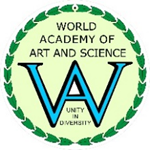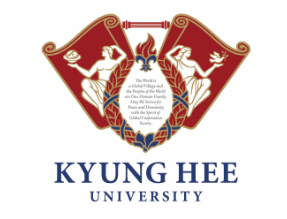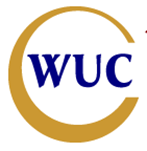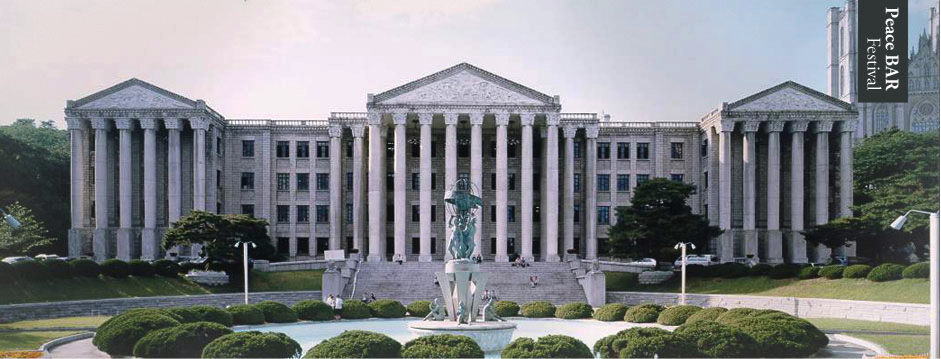New Paradigm and Planetary Engagement
 |
 |
 |
WAAS-WUC-KHU Colloquium
in Commemoration of the 35th Anniversary of
UN International Day of Peace

Main Theme: “New Paradigm and Planetary Engagement: A Call for responsibility”

Humanity today faces critical challenges. The choice before us is either evolution or extinction. As Pope Francis encyclical, Laudato Si, suggests, unless we, the global community, can find ways to revitalize the healthiness of an integral ecology that incorporates mutually inter-connected human, social, and environmental ecological systems, the human species is not sustainable. The starting point for meeting these challenges is to awaken human minds to the need for radical change of course. This should necessarily lead to a quantum shift in the paradigm of education, especially university education. This Colloquium provided a venue to reflect upon the reality which humanity confronts today and to envision our best course of action, including a new role for higher educational institutions as architects of the future.
 |
 |
 |
New Paradigm and Planetary Engagement: A Call for Responsibility
Sep 22-23, 2016 at Kyung Hee University, Seoul, Korea
|
Sept. 21. (Venue: KHU Seoul Campus, Peace Hall) 10:30 AM Commemorating Ceremony of the 35th International Day of Peace 3:00 PM ~ 5:30 PM Round Table I Transformation of Civilization and the Path of Conscious Panelists: – Heitor Gurgulino de Souza, President, World Academy of Art & Science; President, World University Consortium – Roberto Peccei, Vice President of Club of Rome and Trustee of World Academy of Art & Science – Inwon Choue, President of KHU – Ervin Laszlo, founder of Club of Budapest Sep 22 and 23rd Colloquium: “New Paradigm and Planetary Engagement: A Call for responsibility” One 15 min presentation and 2 panel responses followed up open discussion on each topic. Colloquium Session I: New Paradigm in Human Ecology The multidimensional challenges confronting humanity today present compelling evidence of the need for a radical shift in global development theory, strategy and policy. Human relationships are the foundation for wealth creation, human security, well-being, civilization and culture. A new paradigm in human ecology envisions a shift from the exclusive preoccupation with quantitative macro-economic growth and mechanistic solutions to social problems to a targeted effort to maximize the benefits of development in terms of human dignity, security, welfare and well-being for all people. It seeks to generate and release human energy, creativity, dynamism and initiative, to foster positive relationships and provide effective avenues for the fullest expression of this human potential in action. Co-Chair: Garry Jacobs, Chief Executive Officer, World Academy of Art & Science; Chairman of the Board, World University Consortium Session 1A: Human-centered development This session will examine the concept of human-centered development, the core elements of a comprehensive shift in strategy, the means to effectuate change, the potential impact on the development of human potential and creativity, and its benefits to society. Discussion questions for this session:
Speaker: Winston Nagan, Chairman of the Board, World Academy of Art & Science Panelist: Erich Hoedl, Vice-President of European Academy for Sciences and Arts; former Rector at Wuppertal University, Germany Session 1B: Independent Thinking, Creativity and Individuality A new paradigm in human-ecology seeks to more fully develop and harness the unlimited creative power of human beings and human relationships. This session will focus on ideas, strategies and institutional mechanisms to maximize the opportunities for development and expression of human initiative, creativity and originality. Discussion questions for this session:
Speaker: Stefan Brunnhuber, Medical Director and Chief Medical Officer, Diakonie Hospital, Germany Panelist: Alberto Zucconi, Secretary General, World University Consortiumand President, Person-Centered Approach Institute, Italy. Colloquium Session II: New Paradigm in Social Ecology Society is a vast, complex and ever-evolving network of organized human relationships. Organization is the core technology and central building block for development of society. Prevailing social theories tend to reduce our conception of society and organization to static, fragmented, mechanistic, materialistic theories and quantitative models. New paradigm thinking should reflect the vibrantly alive, organic wholeness and integration of society and the evolutionary creative potential of organization for human development. Co-Chair: Ivo Šlaus, Honorary President, World Academy of Art & Science Session 2A: Human-centered Economics & Business Society is the mother of all human invention. It is the rich reservoir of knowledge, skills, organizational know-how and technology from which individuals and businesses continuously draw inspiration and materials for creativity, innovation and social evolution. Economy is a subset of society and completely dependent on the wider society for its growth and development. Businesses are children of the society. They grow and flourish in the measure they are in harmony with the evolving needs and potentials of the social collective. This session will explore the relationship between society, economy and business. Discussion questions for this session:
Speaker: Neantro Saavedra-Rivano, Professor Emeritus of Economics, University of Tsukuba, Japan. Panelists: Erich Hoedl, Vice-President of European Academy for Sciences and Arts; former Rector at Wuppertal University, Germany Session 2B: Toward an Integrated Science of Society This session will explore the potential for development of a value-based, trans-disciplinary, evolutionary theory of society which takes into account the complex inter-linkages and interrelationships between the different fields of social science, identifies underlying principles common to all fields of social science, restores a central position to subjective human experience in social science theory and policy, recognizes the central role of social organization and social power in determining the distribution of social benefits, and promotes the fullest contribution of the individual as the catalyst of social progress.
What underlying principles can be identified that are applicable to all fields of social science? Speaker: Garry Jacobs Panelists: Winston Nagan Colloquium Session III: New Paradigm in Education Education is the most powerful instrument developed by humanity to promote its own conscious social evolution. Education draws on the cumulative experience of humanity over millennia and passes it on to future generations in a concentrated and abridged form so that each new generation can start off in possession of all the knowledge acquired by humanity in the past. But the increasingly rapid pace of social evolution makes it increasingly difficult for education to keep up with the advances of civilization. As a result, there is a growing time warp and gap between the type of education being offered and the needs of individuals and society. A new paradigm is needed to close the gap. Co-Chair: Heitor Gurgulino de de Souza, President, World Academy of Art & Science and World University Consortium. Session 3A: Person-centered education The current global educational system focuses on delivery of subject content to equip students with the knowledge and skills needed for employment and career success. But the rapid pace of technological and social development makes it increasingly difficult to anticipate future needs. Lifelong learning is becoming essential. More than any specific set of knowledge and skills, students need to learn how to learn. A shift in educational content and pedagogy is needed to emphasize the central importance of values, personality and individuality.
Speaker: Alberto Zucconi Panelists: Stefan Brunnhuber Session 3B: Future of Higher Education: Emerging Role of University in the Age of Global Collaboration If you were asked to develop a global system of higher education designed to delivery world-class quality in a manner accessible and affordable to all human beings, how would you do it? How would that system differ from the prevailing approach? What kind of quantum shift is needed in the paradigm for managing higher educational institutions? What criteria should be adopted by a global evaluation system of universities in order to steer us in the right direction.
Speaker: Ivo Šlaus Panelists: Roberto Peccei, Vice-President, Club of Rome; Member of the Board of Trustees, World Academy of Art & Science; Professor of Physics and Astronomy and Former Vice Chancellor for Research, UCLA. Session IV: Conclusions and Future Collaboration between KHU, COR, WAAS & WUC |
 |
 |
 |
 |
 |
